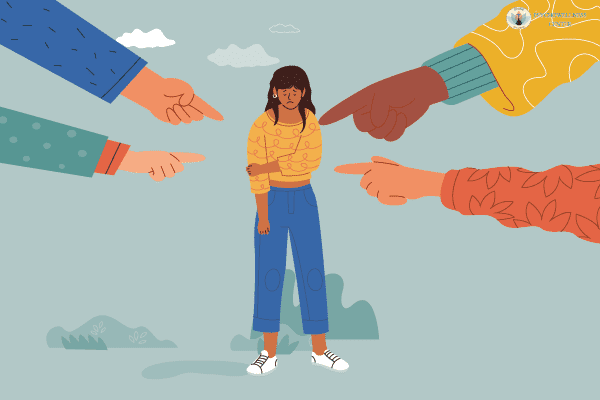Labelling and mislabeling are pervasive phenomena in social life that significantly influence individuals’ identities, interactions, and societal structures. Labels can be both empowering and limiting, shaping how people perceive themselves and others. Mislabeling, on the other hand, often leads to misunderstandings, stereotypes, and social injustices. This article explores the concepts of labelling and mislabeling, their psychological and social impacts, and strategies for mitigating their negative effects.
Understanding Labeling
Labelling involves assigning a category or descriptor to an individual or group based on certain characteristics or behaviours. Sociologist Howard Becker introduced the labelling theory in the context of deviance, suggesting that labels assigned by society can lead individuals to internalize these labels and act accordingly (Becker, 1963). Labels can be based on various attributes, including race, gender identity, sexual orientation, socioeconomic status, and mental health.
Positive and Negative Labels
Labels can have positive effects when they affirm individuals’ identities and provide a sense of belonging. For instance, identifying as part of a supportive community or professional group can boost Self-esteem and foster solidarity. However, labels often carry negative connotations, especially when they are imposed without consent or understanding. Negative labels, such as “lazy,” “criminal,” or “mentally ill,” can stigmatize individuals and limit their opportunities.
The Consequences of Mislabeling
Mislabeling occurs when individuals are assigned labels that do not accurately reflect their identity, behaviour, or experiences. This can result from misunderstandings, biases, or deliberate prejudice. Mislabeling has several adverse consequences:
-
Identity Distortion
When individuals are mislabeled, their true identities are overshadowed by false perceptions. This can lead to identity distortion, where people feel compelled to conform to the incorrect labels assigned to them. For example, a student mislabeled as “troublesome” may begin to exhibit disruptive behaviours due to lowered expectations and negative reinforcement from teachers and peers.
-
Stereotyping and Prejudice
Mislabeling often perpetuates stereotypes and prejudice. Labels based on race, ethnicity, or religion can reinforce discriminatory attitudes and behaviours, leading to social exclusion and inequality. For instance, mislabeling all members of a particular ethnic group as “violent” can result in unjust treatment and systemic discrimination.
-
Psychological Impact
The psychological impact of mislabeling can be profound. Individuals who are mislabeled may experience Anxiety, Depression, and low self-esteem. The stress of constantly fighting against false labels can lead to emotional exhaustion and a diminished sense of self-worth (Link & Phelan, 2001).
Labelling in Various Social Contexts
Labelling and mislabeling manifest in various social contexts, including education, the workplace, and the media.
-
Education
In educational settings, labelling can significantly affect students’ academic performance and self-concept. Labels such as “gifted” or “slow learner” can influence teachers’ expectations and students’ self-perceptions. Research shows that positive labels can enhance academic achievement, while negative labels can hinder progress and contribute to a self-fulfilling prophecy (Rosenthal & Jacobson, 1968).
-
Workplace
In the workplace, labelling can impact career advancement and professional relationships. Employees labelled as “competent” or “team players” are more likely to receive promotions and positive evaluations. Conversely, those mislabeled as “difficult” or “incompetent” may face career stagnation and workplace Bullying.
-
Media
The media plays a crucial role in shaping public perceptions through labelling. News outlets and social media platforms often use labels to categorize individuals and groups, which can influence societal attitudes and behaviours. Mislabeling in the media can perpetuate stereotypes and misinformation, leading to public misunderstanding and social division.
Strategies to Mitigate Negative Effects of Labeling and Mislabeling
Addressing the negative effects of labelling and mislabeling requires a multifaceted approach involving self-awareness, education, and policy changes.
-
Awareness and Education
Increasing awareness about the impact of labelling and mislabeling is crucial. Educational programs and workshops can help individuals understand the consequences of labels and encourage more accurate and respectful communication. Promoting critical thinking and media literacy can also help people recognize and challenge biased labels.
-
Inclusive Policies and Practices
Organizations and institutions should implement inclusive policies and practices to reduce the harmful effects of labelling. This includes creating environments where diversity is valued and individuals are assessed based on their abilities and contributions rather than preconceived labels. Anti-discrimination policies and diversity training can help foster a more inclusive and equitable environment.
-
Support Systems
Providing support systems for those affected by negative labels is essential. Counselling and mental health services can help individuals cope with the psychological impact of labelling and build resilience. Support groups and advocacy organizations can offer a sense of community and empower individuals to challenge harmful labels.
-
Positive Labeling
Encouraging positive labelling can help counteract the effects of negative labels. Recognizing and affirming individuals’ strengths and accomplishments can boost self-esteem and motivation. Positive labels should be accurate, respectful, and affirm individuals’ identities and experiences.
Conclusion
Labelling and mislabeling are powerful forces in social life that can shape individuals’ identities, influence social interactions, and perpetuate inequality. While labels can provide a sense of belonging and affirmation, mislabeling can lead to identity distortion, stereotyping, and psychological distress. Addressing these issues requires awareness, education, inclusive policies, and support systems to promote more accurate and respectful communication. By understanding the impact of labelling and mislabeling and taking proactive steps to mitigate their negative effects, we can create a more inclusive and equitable society.
Additionally, you may schedule an appointment with the Best psychologist delhi or Therapists in delhi and receive Mental health counselling at the Psychowellness Centre, which has many locations in Delhi NCR, NOIDA, Faridabad, Janakpuri, Dwarka, and Vasant Vihar.
Contribution: Dr (Prof) R K Suri, Clinical Psychologist, life coach & mentor TalktoAngel and Ms Shiva Tharini Counselling Psychologist.

